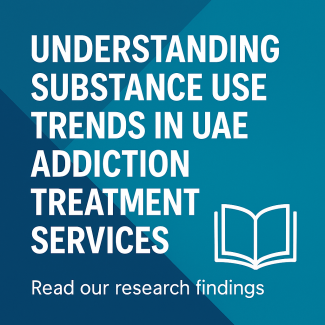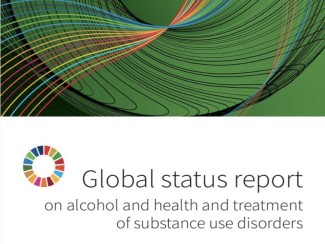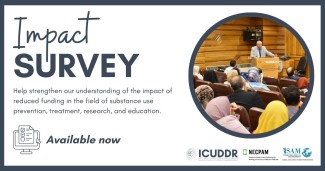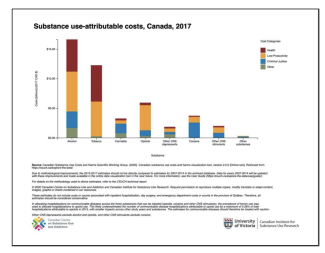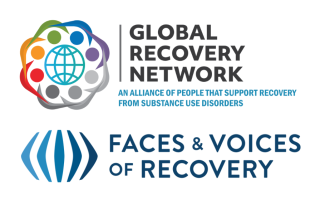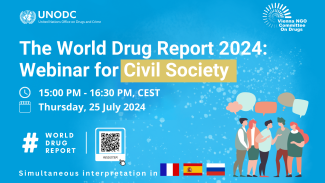The Integrated Recovery-Oriented Nursing (IRON) Care Model: A Theoretical Framework for Optimizing Addiction Treatment Outcomes
Submitted by Ahmad Muneer Naser - 29 May 2025
The Integrated Recovery-Oriented Nursing (IRON) Care Model: A Theoretical Framework for Optimizing Addiction Treatment Outcomes
The Integrated Recovery-Oriented Nursing (IRON) Care Model is a comprehensive theoretical framework designed to guide nursing practice in addiction treatment. It emphasizes a holistic, person-centered, and strengths-based approach, integrating evidence-based nursing interventions with the core principles of recovery. Grounded in established nursing and psychological theories, the IRON model aims to optimize treatment outcomes by fostering resilience, promoting self-efficacy, addressing co-occurring conditions, and supporting individuals through a continuum of care, ultimately leading to sustained recovery and improved quality of life. This framework positions nurses as pivotal in facilitating a hopeful and collaborative journey towards self-directed wellness.
Core Philosophy:
The IRON model is built on the belief that recovery from addiction is a deeply personal, multidimensional, and ongoing process that extends beyond mere abstinence to encompass overall well-being and a meaningful life (Anthony, 1993). It acknowledges the complex interplay of biological, psychological, social, and spiritual factors in the etiology and maintenance of addiction, as well as in the journey of recovery (Engel, 1977). The model champions hope, empowerment, respect, and collaboration, positioning nurses as key therapeutic agents and facilitators in the individual's path towards a meaningful and self-directed life, aligned with the principles of recovery-oriented systems of care (SAMHSA, 2011).
Key Tenets & Theoretical Underpinnings:
The IRON model draws upon and synthesizes several established theories and perspectives:
The Recovery Model: This model, particularly as defined by SAMHSA (2011), emphasizes that recovery is a process of change through which individuals improve their health and wellness, live self-directed lives, and strive to reach their full potential. Core components include hope, person-driven care, many pathways, holistic approaches, peer support, relational connections, culture, addressing trauma, leveraging strengths/responsibility, and respect.
Peplau's Theory of Interpersonal Relations: This nursing theory underscores the therapeutic nurse-patient relationship as a cornerstone of healing and growth, involving distinct phases (orientation, identification, exploitation, resolution) that facilitate patient learning and self-understanding (Peplau, 1952/1991).
Strengths-Based Perspective: Originating in social work, this perspective focuses on identifying and mobilizing an individual's inherent strengths, talents, resources, and aspirations, rather than dwelling on deficits or pathology (Saleebey, 2006).
Transtheoretical Model (Stages of Change): This model (Prochaska & DiClemente, 1983) provides a framework for understanding an individual's readiness for change (precontemplation, contemplation, preparation, action, maintenance) and tailoring interventions accordingly to enhance motivation and progress.
Biopsychosocial-Spiritual Model: This model provides a holistic framework for understanding health and illness, recognizing the interconnectedness of biological, psychological, social, and spiritual dimensions of human experience (Engel, 1977; Puchalski, 2001).
Trauma-Informed Care Principles: Recognizes the pervasive impact of trauma and promotes environments of healing and recovery by emphasizing safety, trustworthiness, choice, collaboration, and empowerment (SAMHSA, 2014a; Harris & Fallot, 2001).
The IRON Acronym & Components:
The IRON model comprises four interconnected core components:
I – Integrated & Individualized Care
Holistic Assessment: Conducting comprehensive, ongoing assessments that cover physical health (including co-occurring medical conditions, chronic pain, infectious diseases), mental health (co-occurring psychiatric disorders, trauma history, cognitive function), substance use patterns and history, social determinants of health (housing stability, employment, education, financial resources, legal issues, social support networks), spiritual needs and resources, cultural background, values, and beliefs (American Psychiatric Association [APA], 2013; International Nurses Society on Addictions [IntNSA], 2016).
Person-Centered Planning & Shared Decision-Making: Collaboratively developing dynamic care plans that are explicitly tailored to the individual's unique needs, strengths, preferences, self-identified goals, cultural context, and stage of change (Prochaska & DiClemente, 1983). This involves shared decision-making where the individual is an active and respected partner in all aspects of their care (O'Connor et al., 2009; SAMHSA, 2011).
Interprofessional Collaboration & Care Coordination: Engaging in seamless teamwork and communication with physicians, therapists, social workers, peer support specialists, pharmacists, case managers, and other relevant professionals to provide comprehensive, coordinated, and non-fragmented care. Nurses often serve as crucial care coordinators, ensuring continuity and integration of services (World Health Organization [WHO], 2010).
Addressing Co-occurring Disorders (Integrated Treatment): Implementing evidence-based practices for the simultaneous and integrated treatment of substance use disorders and other mental or physical health conditions, recognizing their common co-occurrence and reciprocal influence (Drake et al., 2001; SAMHSA, 2014b).
R – Recovery-Oriented Principles & Resilience Building
Instilling Hope & Fostering Self-Efficacy: Actively communicating belief in the individual's capacity for change, growth, and recovery. Nurses help individuals identify past successes, build confidence in their ability to manage challenges, and develop a positive future orientation, which is central to self-efficacy (Bandura, 1997; SAMHSA, 2011).
Empowerment & Self-Direction: Supporting individuals in making informed choices about their treatment and life, promoting autonomy, personal responsibility, and active participation in their recovery journey. This involves respecting their right to self-determination and supporting their capacity to lead their own recovery (Rapp & Goscha, 2012).
Strengths-Based Interventions: Systematically identifying and mobilizing individual, family, and community strengths, assets, and resources to support recovery efforts. This shifts the focus from problems and pathology to capabilities and potential (Saleebey, 2006).
Trauma-Informed Care: Applying principles of trauma-informed care in all interactions and interventions, recognizing the high prevalence of trauma among individuals with addiction. This involves creating a safe, supportive, and empowering environment that avoids re-traumatization and fosters healing (Harris & Fallot, 2001; SAMHSA, 2014a).
Building Resilience & Coping Skills: Facilitating the development and enhancement of coping mechanisms, stress management techniques, emotional regulation skills, and problem-solving strategies to help individuals navigate triggers, cravings, high-risk situations, and life stressors effectively (Herrman et al., 2011).
O – Ongoing Support & Outcome-Driven Practice
Continuum of Care Navigation & Linkage: Assisting individuals in transitioning smoothly across different levels and types of care (e.g., detoxification, residential, outpatient, mutual-help groups, aftercare) and connecting them with sustainable long-term recovery supports in their communities (McKay, 2009).
Relapse Prevention & Management: Collaboratively developing personalized relapse prevention plans, including identification of warning signs and coping strategies. Educating about relapse as a potential part of the recovery process (not a failure) and providing non-judgmental support and re-engagement strategies if relapse occurs (Marlatt & Donovan, 2005).
Long-Term Engagement & Recovery Capital: Utilizing motivational interviewing (Miller & Rollnick, 2013), regular check-ins, and connection to peer support and community resources to maintain engagement in recovery-sustaining activities. Focus on building "recovery capital" – the internal and external resources necessary to initiate and sustain recovery (Cloud & Granfield, 2008).
Monitoring & Evaluating Outcomes: Systematically tracking progress towards individualized goals and broader recovery outcomes (e.g., abstinence, reduced harm, improved physical and mental health, employment, housing, quality of life) using validated instruments and patient-reported outcome measures (PROMs). Utilizing outcome data to adjust care plans, improve service delivery, and demonstrate program effectiveness (Rush et al., 2008).
Harm Reduction Strategies: When aligned with individual goals and values, incorporating harm reduction strategies (e.g., naloxone distribution, safer use education, syringe services) as part of a comprehensive approach to reduce the negative consequences of substance use, recognizing that recovery pathways are diverse and not always linear (Marlatt et al., 2011).
N – Nursing Excellence & Nurturing Therapeutic Alliance
Therapeutic Relationship & Alliance: Establishing and maintaining a trusting, empathetic, respectful, genuine, and non-judgmental relationship as the foundation for all nursing interventions. The quality of the therapeutic alliance is a significant predictor of treatment outcomes (Peplau, 1952/1991; Martin et al., 2000).
Evidence-Based Nursing Interventions: Skillfully utilizing a range of interventions supported by research, including:
Medication-Assisted Treatment (MAT) support: Education, administration, monitoring, and adherence support for FDA-approved medications (e.g., buprenorphine, naltrexone, methadone) (SAMHSA, 2021; ASAM, 2020).
Psychoeducation: Providing comprehensive education on addiction as a chronic illness, the neurobiology of addiction, recovery processes, health promotion, disease prevention, and medication management (IntNSA, 2016).
Motivational Interviewing (MI) & Brief Interventions: Employing MI techniques to enhance intrinsic motivation for change and delivering brief interventions to address substance use in various settings (Miller & Rollnick, 2013).
Symptom Management: Expertly managing withdrawal symptoms, pain, psychiatric symptoms, and side effects of medications.
Advocacy & Stigma Reduction: Championing the individual's rights and needs within the healthcare system and community. Actively working to reduce stigma associated with addiction and mental illness through education and modeling respectful, person-first language (Corrigan et al., 2009; American Nurses Association [ANA], 2015).
Ethical Practice & Cultural Humility: Adhering to high ethical standards as outlined in nursing codes of ethics (e.g., ANA Code of Ethics for Nurses), maintaining professional boundaries, and practicing cultural humility – a lifelong process of self-reflection and critique to redress power imbalances and develop mutually respectful partnerships with individuals from diverse cultural backgrounds (Tervalon & Murray-Garcia, 1998; ANA, 2015).
Continuous Professional Development: Committing to ongoing learning, skill development, and staying abreast of current research and best practices in addiction nursing, recovery-oriented care, and psychopharmacology (IntNSA, 2016).
Interplay of Components:
The IRON components are not intended to be applied in a rigid, linear fashion but are dynamic, synergistic, and iterative. For instance, an Individualized assessment (I) informs the development of a Recovery-oriented plan and resilience-building strategies (R), which requires Ongoing support and outcome monitoring (O), all delivered with Nursing excellence through a strong therapeutic alliance (N). Progress in one area often positively influences and reinforces others, creating a virtuous cycle of healing and growth.
Nursing Roles & Responsibilities within the IRON Model:
Nurses practicing within the IRON model embody multiple roles:
Therapeutic Partner & Assessor: Conducting comprehensive holistic assessments and establishing a collaborative relationship.
Care Planner & Coordinator: Developing, implementing, and evaluating individualized care plans, liaising with interprofessional teams and community resources.
Educator & Coach: Providing information, teaching skills, and using motivational approaches to support self-management and behavior change.
Advocate & Change Agent: Protecting patient rights, promoting access to equitable care, reducing stigma, and influencing systems to be more recovery-oriented.
Clinical Expert & Care Giver: Providing expert direct nursing care, including advanced assessment, medication management, symptom relief, and crisis intervention.
Expected Outcomes of the IRON Model:
Systematic implementation of the IRON model is expected to contribute to:
Increased treatment engagement, retention, and satisfaction with care.
Reduced substance use frequency and severity, and/or increased periods of abstinence.
Improved management and outcomes for co-occurring physical and mental health conditions.
Enhanced self-efficacy, coping skills, resilience, and problem-solving abilities.
Improved social functioning, community integration, and quality of life (e.g., stable housing, employment, positive relationships).
Reduced relapse rates and/or more effective management of relapse episodes.
Decreased stigma experienced by individuals seeking and receiving addiction treatment.
Enhanced safety and reduced harm associated with substance use.
Limitations and Future Directions:
While the IRON model provides a comprehensive theoretical framework, its empirical validation is a necessary next step. Future research should focus on evaluating the feasibility, fidelity, and effectiveness of implementing the IRON model across diverse addiction treatment settings and populations. This includes developing specific training curricula for nurses, creating fidelity measures, and conducting controlled trials to assess its impact on patient, provider, and system-level outcomes. Furthermore, adaptation and tailoring of the model to specific cultural contexts may be necessary.
Conclusion:
The Integrated Recovery-Oriented Nursing (IRON) Care Model offers a robust, theoretically grounded, and actionable framework to guide nurses in delivering high-quality, effective, and compassionate care in addiction treatment. By systematically integrating evidence-based nursing practices with the empowering principles of recovery, the IRON model has the potential to significantly optimize treatment outcomes, foster lasting recovery, and transform the lives of individuals, families, and communities affected by addiction. It calls for a paradigm shift where nurses are recognized and empowered as central figures in championing a hopeful, person-driven, holistic, and integrated approach to addiction care, ultimately strengthening the fabric of recovery.
The Integrated Recovery-Oriented Nursing (IRON) Care Model: A Theoretical Framework for Optimizing Addiction Treatment Outcomes
The Integrated Recovery-Oriented Nursing (IRON) Care Model is a comprehensive theoretical framework designed to guide nursing practice in addiction treatment. It emphasizes a holistic, person-centered, and strengths-based approach, integrating evidence-based nursing interventions with the core principles of recovery. Grounded in established nursing and psychological theories, the IRON model aims to optimize treatment outcomes by fostering resilience, promoting self...

